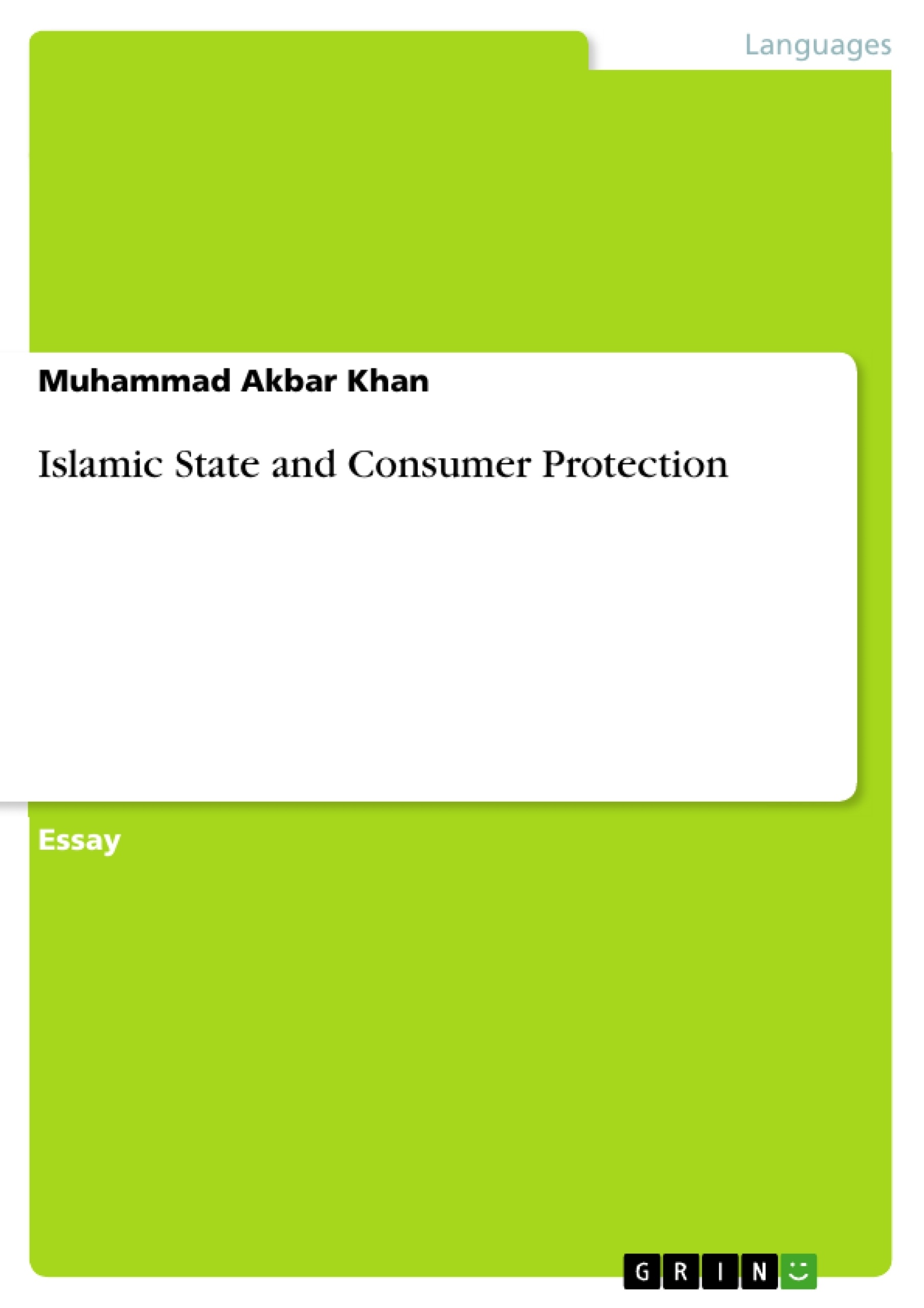Consumers, by definition, include us all. Human beings are consumers by default as consumption is basic to human survival and sustenance. Today almost all the developed countries have promulgated laws related to the protection of consumers. Consumer policy and legislation in any country is considered to be the government’s commitment towards protection of consumer interests. It is important therefore to understand about the role that can be played by Islamic State in the cause of consumer protection. The research paper is aimed to explore the role of Islamic State and its institutions in consumer protection. This paper traces the importance of consumer protection in an Islamic State. It also analyses the efficacy and effectiveness of the institution of Hisba in the protection of consumers` rights and prevention of unfair trade practices.
Inhaltsverzeichnis (Table of Contents)
- A. Introduction:
- B. Islamic State and Consumer Protection
Zielsetzung und Themenschwerpunkte (Objectives and Key Themes)
This research paper explores the role of the Islamic state in consumer protection. It examines the importance of consumer protection within an Islamic state, specifically analyzing the effectiveness of the institution of Hisba in safeguarding consumer rights and preventing unfair trade practices.
- The Islamic State's role in consumer protection
- The significance of consumer protection in an Islamic context
- The efficacy of the Hisba institution in protecting consumer rights
- The importance of ensuring economic justice within the Islamic state
- The implementation of Islamic principles and practices within consumer protection policies
Zusammenfassung der Kapitel (Chapter Summaries)
A. Introduction:
This chapter introduces the concept of the Islamic state, its fundamental principles and structure, and the role of the Shariah as the ideal constitution. It emphasizes the Islamic state's commitment to social justice, establishing what is right and forbidding what is wrong. The importance of the Islamic state in realizing Islamic socio-political and economic justice, implementing Islamic law, and defending Islamic civilization is discussed.
B. Islamic State and Consumer Protection:
This chapter delves into the Islamic state's duty to protect fundamental rights and freedoms, including the preservation of religion, human life, progeny, honor, intellect, and wealth. It outlines specific duties of the Islamic state in relation to consumer protection, such as providing employment opportunities, enforcing the zakat system, engaging in "enjoining good and forbidding evil," supervising government officials, establishing a comprehensive Hisba system, combating Riba (interest), and preventing monopolies and other malpractices in business.
Schlüsselwörter (Keywords)
This research paper focuses on the key concepts of the Islamic State, consumer rights, consumer protection, and the institution of Hisba. It explores the intersection of these concepts, emphasizing the significance of economic justice and the implementation of Islamic principles in safeguarding consumer interests.
Frequently Asked Questions
What is the role of an Islamic State in consumer protection?
The Islamic State has a duty to safeguard consumer interests by implementing Shariah principles that ensure economic justice and prevent exploitation.
What is the "institution of Hisba"?
Hisba is a traditional Islamic institution responsible for "enjoining good and forbidding evil" in the marketplace, including supervising trade practices and protecting consumer rights.
How does the Shariah influence consumer policy?
Shariah serves as the ideal constitution, mandating the protection of wealth, intellect, and human life, which translates into policies against fraud, monopolies, and interest (Riba).
What are the specific duties of the State regarding business malpractices?
The State must combat unfair trade practices like Riba, prevent monopolies, supervise government officials, and ensure that basic needs and employment opportunities are available.
Why is economic justice central to the Islamic socio-political system?
Economic justice is a fundamental commitment of the Islamic State to ensure social welfare and defend Islamic civilization through the implementation of Islamic law.
- Arbeit zitieren
- Muhammad Akbar Khan (Autor:in), 2009, Islamic State and Consumer Protection, München, GRIN Verlag, https://www.grin.com/document/178091



